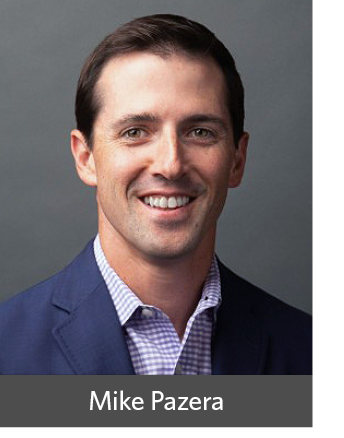When advisor Mike Pazera first joined up with his father at Pazera Capital Management in 2008, the firm—which the elder Pazera started in the late 1970s—was already highly successful. But both father and son recognized the need to actively stay in front of changes in the financial services industry. They also had a desire to do even more to help clients and their families achieve all that is important to them.
“We were always looking to increase our impact in clients’ lives, and I was determined to find the best ways and the best solutions to serve families—not just for a single generation but for multiple generations,” says Pazera, who today serves as the firm’s president.
 That search led Pazera to a formal, systematic method of providing consultative wealth management—a concept that was still relatively novel at the time. Pazera saw the firm’s future direction incorporating that wealth management process, transcending traditional financial planning to deliver value in three key areas:
That search led Pazera to a formal, systematic method of providing consultative wealth management—a concept that was still relatively novel at the time. Pazera saw the firm’s future direction incorporating that wealth management process, transcending traditional financial planning to deliver value in three key areas:
1. Investment consulting. Creating investment plans that reflects clients’ biggest goals and key values so they can build a life of significance.
2. Advanced planning. Addressing clients’ most complex noninvestment issues and challenges—such as mitigating taxes, transferring family wealth, protecting assets and empowering charitable giving.
3. Relationship management. Working with clients to understand them on a deep level and then crafting strategies around that full picture, as well as collaborating closely with other professionals to help deliver expertise and coordinated solutions in the various areas of advanced planning.
A crucial component of the firm’s transition to this wealth management business model was implementing a formal discovery process that enabled Pazera and the team to get to know prospects and clients on a much deeper level than they had in the past.
Pazera explains: “In-depth discovery as part of wealth management means going from asking questions about a person’s age, how much money they want at retirement and other data-focused questions, to what's important about money to each person, what's most important about life and the legacy a person wants to have on the world at large.”
Armed with those insights, Pazera found himself much better equipped to craft dynamic solutions to clients’ advanced needs beyond investment returns—solutions that typically help clients in far greater ways than simply altering their investment portfolios.
“The amount of value we’re able to deliver by using the discovery process insights to inform our actions is amazing,” he notes. “We're uncovering what clients really want to accomplish. Instead of solving for a dollar number, we’re solving for an outcome or a set of outcomes that mesh with their values, what's most important to them, and the impact they want to have—and not just in their lives, but in the lives of others.”
For the firm itself, delivering wealth management has enabled the business to almost triple in size. Pazera is also collaborating with multiple advanced planning professionals and experts to bring a depth of advice and solutions to clients like never before. “Today our clients feel more satisfied, we feel more satisfied and we’re confident that we’re doing everything we can for them,” says Pazera.
Another major benefit: “Because we have a system, we’re able to give our team a great work-life balance. We can be flexible so our people have more time to pursue charitable endeavors and enjoy time with their families,” he notes.
It goes without saying that transitioning from one business model to another isn’t easy and doesn’t happen overnight. Pazera offers this advice for advisors looking to redesign their practices:
1. Be methodical. You have to evolve and grow, says Pazera, or else you’re sliding backwards. However, he cautions not to try to accomplish great things in short order. “You don’t have to win the lottery on day one of a new endeavor. Just try to get 1% better each day, and the trend line over the arc of a year or more will be pretty amazing,” he says.
2. Get comfortable with discomfort. Pazera believes advisors looking to improve their businesses ideally should be taking at least one uncomfortable action a day. “If you’re uncomfortable, you’re probably pushing yourself and thinking big—which means you’re probably getting at least 1% better,” he says. “Oh, and tackle the uncomfortable task first thing—you’ll feel great about the rest of your day.”
3. Get the right people on the bus. Avoid naysayers. Surround yourself with team members who will support your willingness to think big and push forward. “You need people who will go on the journey with you and help you implement your plan or even come up with a better one,” says Pazera.
Today, thanks to the strategies he’s helped to implement, Pazera believes the firm is positioned for the future he envisions. “We're growing at the pace we want to grow at, with the clients we want to grow with, while maintaining the firm and work/life balance that we want.”
John J. Bowen Jr. is CEO of CEG Worldwide and CEG Insights.








